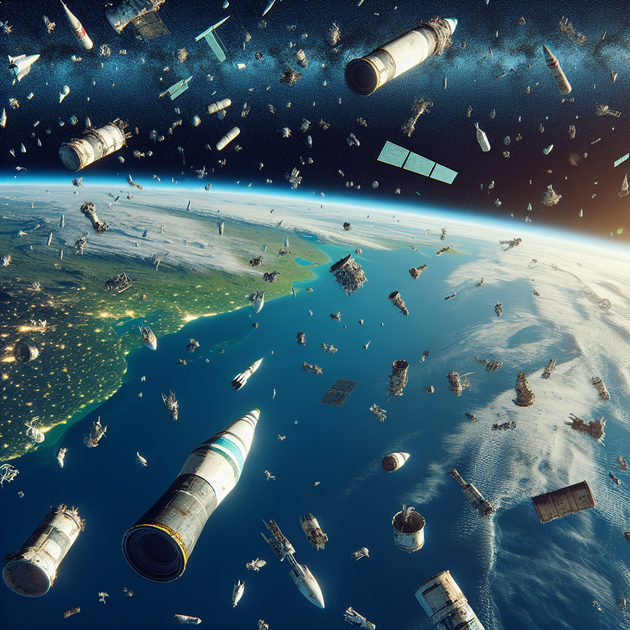Ever wonder who’s leaving the most trash behind in space these days? You might be surprised to learn that it’s not a global problem anymore—at least not like it used to be. According to a brand new study, when it comes to littering in low-Earth orbit (LEO), almost everyone has cleaned up their act… except for one country. The big exception? China. Since 2000, China’s been responsible for more dead rocket mass floating around our planet than every other nation combined—and things are actually getting worse.
What Is Low-Earth Orbit and Why Does Space Junk Matter?
Let’s start with the basics. Low-Earth orbit (or LEO) is the part of space closest to us—think anywhere from about 100 to 2,000 kilometers above the ground. It’s where you’ll find most satellites zipping around Earth and also where astronauts hang out on the International Space Station.
But here’s the catch: every time we launch something into LEO—a satellite or a spacecraft—it needs a big push from rockets. Sometimes those rocket stages (the big pieces that fall off after launching) don’t come back down right away. Instead, they can stay up there for years or even decades as “dead rocket mass.”
Why does this matter? Because all that leftover junk poses real risks:
- Collision danger: Dead rockets can crash into working satellites or each other.
- Space station safety: Astronauts need to dodge debris.
- Future launches: The more crowded LEO gets, the trickier (and riskier) new missions become.
- Kessler Syndrome: Too much debris could trigger a chain reaction of collisions (not as sci-fi as it sounds!).
China’s Growing Role in Space Junk Since 2000
So what did this new study actually find about China space junk? Here’s where things get eye-opening.
Since the year 2000:
- China has contributed more dead rocket mass in long-lived LEO orbits than all other countries put together.
- Most other major spacefaring countries—like the US and Russia—have improved their practices and now rarely leave big chunks of rockets up there.
- The problem with Chinese rocket stages isn’t just old news—it’s getting worse. In just the past two years alone, their pace of adding new debris has accelerated.
To put it simply: while most of the world is trying to keep LEO clean and safe for everyone, China’s approach hasn’t kept up with modern standards for orbital cleanup.
A Quick Look at How Other Countries Clean Up Their Act
It wasn’t always like this! Back in the ‘70s and ‘80s (and even into the ‘90s), nearly every country left behind spent rocket stages after each launch. But over time—with better technology and an increasing awareness of “orbital pollution”—countries started changing how they operate.
Here are some ways nations have cut down on space litter:
- De-orbiting: Using extra fuel or clever maneuvers to make sure rockets fall back into Earth’s atmosphere and burn up quickly.
- Sustainable design: Building rockets that naturally re-enter after completing their mission.
- Laws & guidelines: Agencies like NASA now follow strict rules about leaving stuff behind.
That leaves us with an uncomfortable truth: pretty much everyone but China is following these best practices.
An Astronaut’s Perspective on Space Debris
If you’ve ever listened to astronauts talk about their time aboard the ISS (International Space Station), you’ll notice how seriously they take orbital debris—even tiny flecks of paint can punch holes at those speeds! One astronaut once described hearing small impacts on station windows—a reminder that what goes up doesn’t always come down quickly.
The growing pileup from China space junk, then, isn’t just a stat; it’s something real people worry about while living and working above us.
The Path Forward—And Your Thoughts?
So what happens next? The international community is watching closely as more Chinese launches head to LEO each year. Some experts hope global pressure will encourage safer practices—or perhaps spark cooperation on cleaning up old debris already out there.
But here’s where I’d love your take: Should there be stricter international rules about who can leave stuff in orbit? Is this something only governments should worry about—or do private companies launching satellites have a role too?
Let me know your thoughts below—and next time you look up at a clear night sky, remember there might be more than just stars whizzing overhead!

Leave a Reply